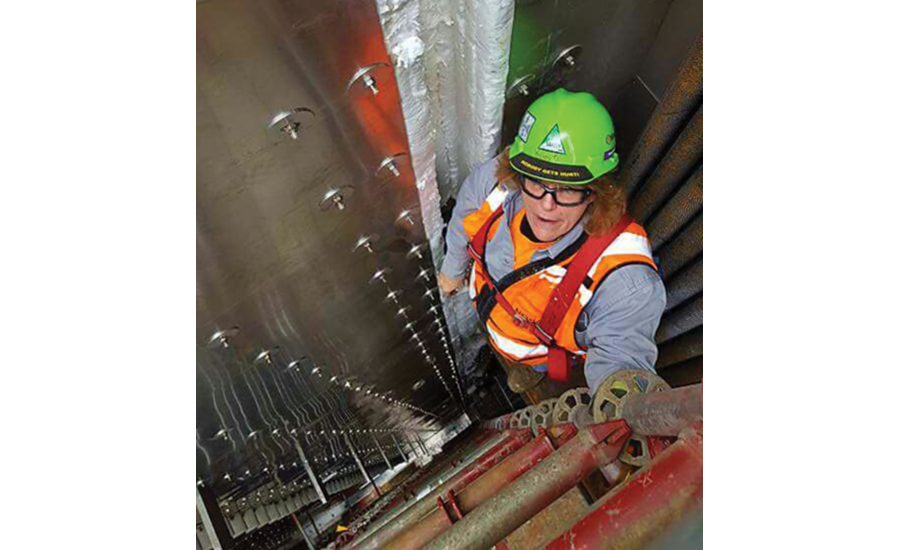Workers' Voices
Construction Workers: Tennessee Boilermaker Has a Special Mentor
For Wendy Overeem, craft work is literally all in the family

Union boilermaker Wendy Overeem has built power-plant boilers and her own economic security in a 28-year craft-labor career.
PHOTO COURTESY OF WENDY OVEREEM
Wendy Overeem of Tullahoma, Tenn., was exposed to the construction work early in life. Her father was a pipefitter. Her grandfather and uncles were carpenters. A great aunt was a welder of sea planes during World War II.
But she followed the career footsteps of her mother, Inez Thomas. After Overeem’s father died at a young age, it was up to Thomas to support the family. She used his G.I. Bill benefits to attend trade school and become a union boilermaker. “She was a hellcat,” Wendy recalls with pride.
Overeem has a similar story. A short-term marriage resulted in a son and daughter before ending in divorce. She worked as a minimum-wage construction laborer for a few years before deciding she, too, would be a boilermaker. After a three-and-a-half-year apprenticeship, she was accepted into the Boilermakers Local 454 in Chattanooga.

“What I love most is the camaraderie. We are all bringing the same things to the table.”
–Wendy Overeem (48), Union Boilermaker
Local 454,
Tullahoma, Tenn.
For 28 years, Overeem has helped build, repair and maintain massive boilers, or furnaces, for power plants, refineries and mills. She has climbed to dizzying heights and crawled into claustrophobic spaces. She has traveled to many parts of the country to take jobs. The biggest, for which she was a foreman, was a two-year project building two 14-story, state-of-the-art units at a coal-fired power plant in Wisconsin.
“I love everything about the job—the welding, the rigging, working with metal,” says Overeem, age 55. “What I love most is the camaraderie. It doesn’t matter if you’ve never met the people when you go to a job. You fit in because we are all bringing the same things to the table, and we accomplish what we set out to do.”
The money and benefits have allowed her to provide security for herself and her family.
“It enables me to never have to remarry,” she says. “If I found someone, I would have, but I didn’t need someone to help with the bills. We have a good life and a nice home.”
The worst part was time away from her children when they were young, she adds.
Compared to her mother’s working years, Overeem sees more women on the job and less sexist behavior. Thomas frequently shared stories of being passed over for jobs and enduring threats and vulgar language. Overeem is mostly accepted by her male co-workers, but says she has to prove herself on every job. And subtle discrimination creeps in. For instance, all skills being equal, a man is more likely than a woman to be chosen as foreman, says Overeem.
“Some foremen hated women and did not want them on the job. They would put you on the crappiest job there was or stick you on 'hole watch,'” (the often-monotonous task of monitoring the entrance to a confined space).
“The level of respect is 90 percent better than it was for my mother,” Overeem says. “She made it so much better for women today. They know they can’t run us off. They know we are here to stay.”
|
Back to Craft Workers Open Up About Their Careers |



